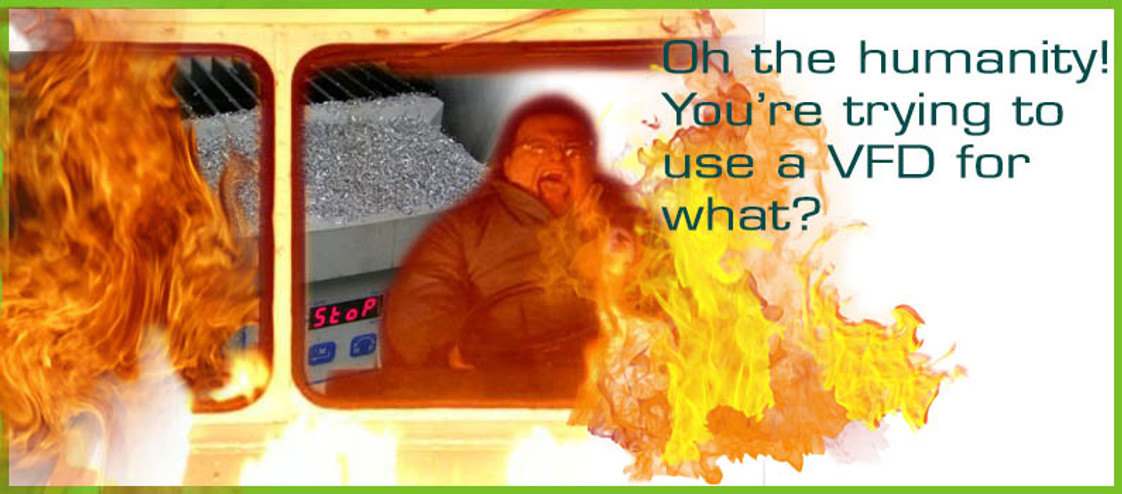
When NOT to use a VFD
Posted by Beckie Sullivan on Dec 7th 2023
In the world of technical support, it’s not uncommon to get calls asking whether or not a “insert random VFD here” can be used in a certain application.
Generally we like to start with the following set of questions:
1. What is the Motor Type/HP/Phase/Amps/Voltage?
2. What is the supply side voltage and phase?
3. What is the motor(s) connected?
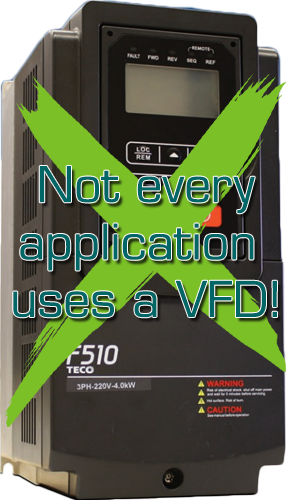
So after this when we have the answer and the caller then tells us I also want to use it on the following:
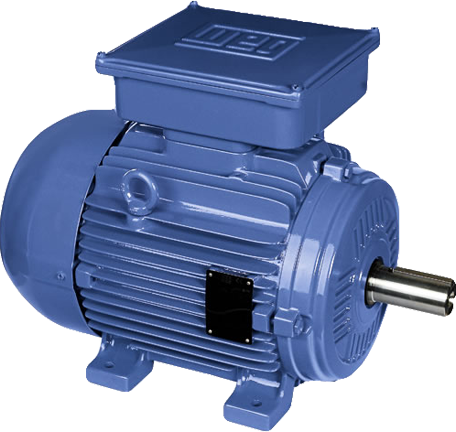
Can you use a VFD with single-phase motors?
Answer: NO, it’s advised to swap out the motor to a 3 phase inverter duty rated unit.
How about combined loads at different speeds?
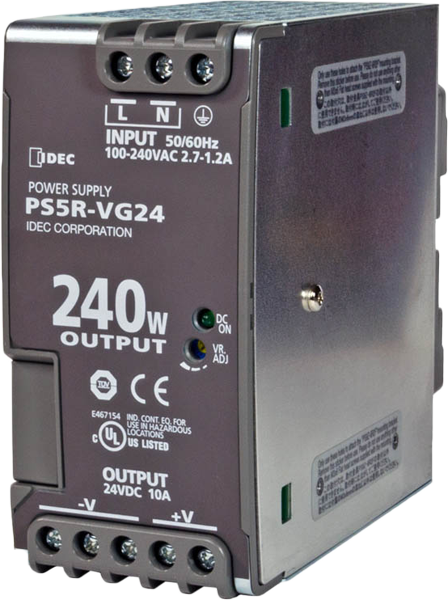
Can you use a POWER SUPPLY for multiple uses other than 3-phase motor?
Answer: Nope...due to the fact the output being PWM (Pulse Width Modulation) of DC power in a manipulated SINE WAVE.
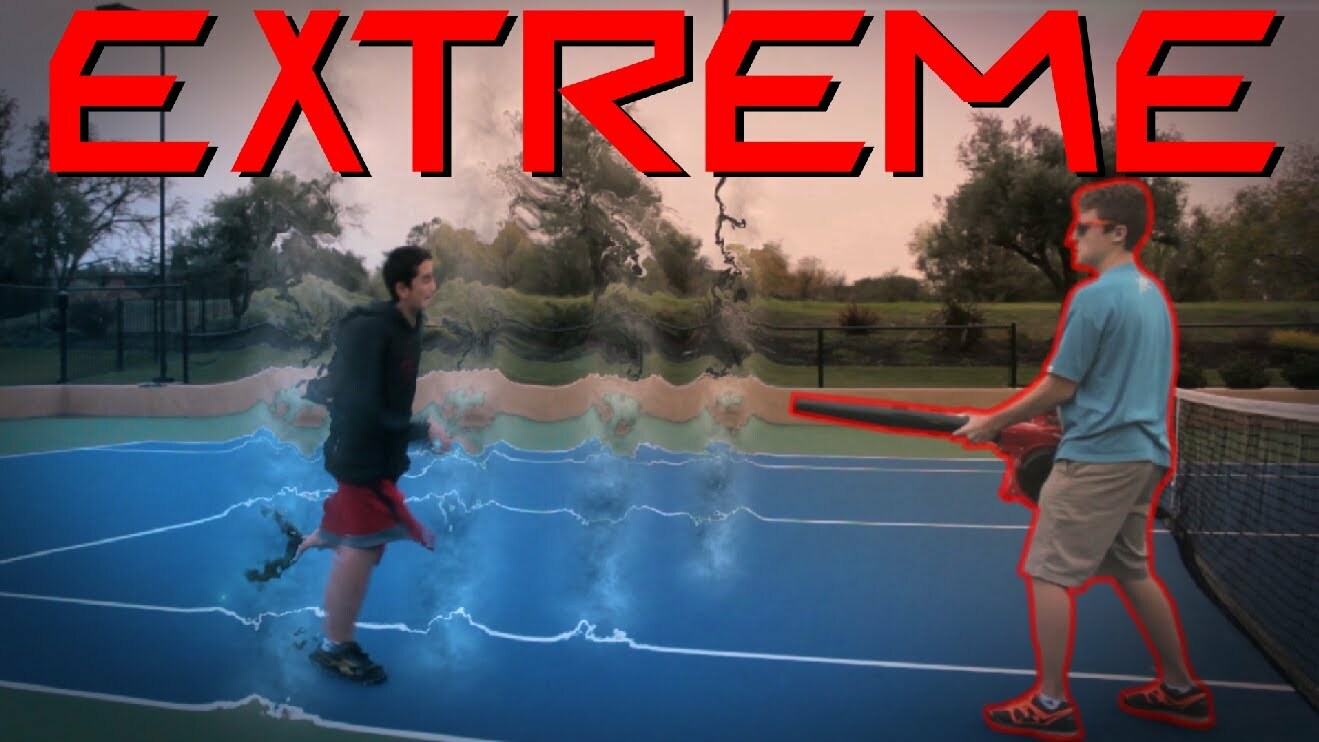
Can I use my VFD on an electric leaf blower?
Answer: Depending on the motor design, sure…it’s possible, but not really practical.
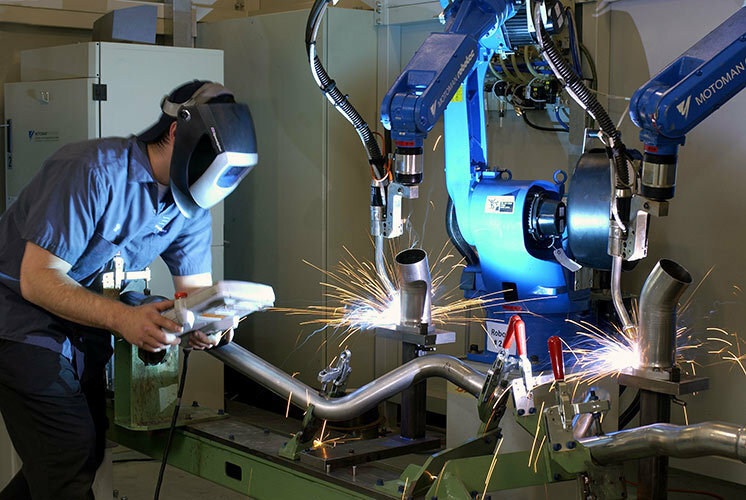
What about using a VFD with a welder?
Answer: Nope, a VFD is not compatible with a (resistive) load a.k.a. welders. We recommend using a Rotary Phase Converter (RPC).
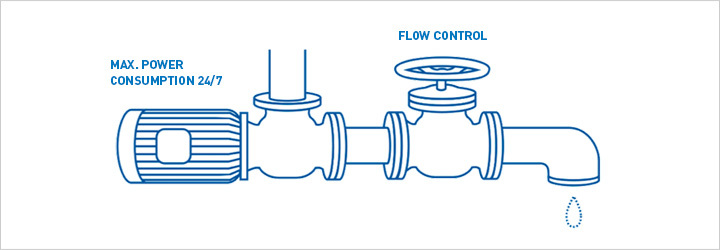
Fan/Pump style drives (VT) rated for a constant torque rated applications?
Answer: Not a total no, but…not really the best option. Unless the VFD has been over sized to account for added current rating and meets the needed 150% overload for 1 minute of duration it’s best to look elsewhere for control.
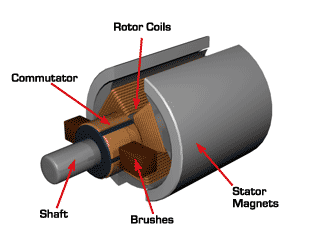
I have a DC motor, can I use a VFD on this as well?
Answer: Unfortunately not, you’ll actually need a separate DC speed controller to use on the DC motor.
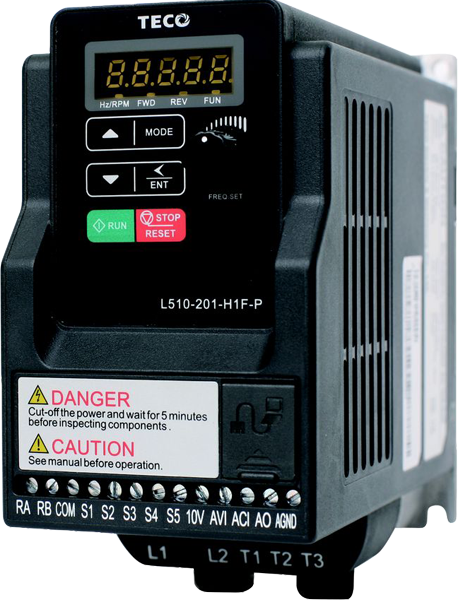
So you want to use a 1HP VFD on a 3HP motor?
Answer: Not really an option. This is due to the fact that one would never obtain full performance from this situation and would trip out the VFD once the amp threshold if exceeded beyond its overload limit.
In conclusion, a VFD has the potential to control motors very well, but not all are suited for every application out in the field.
